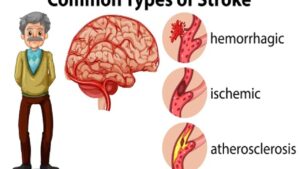Man ‘resurrected’ through AI to confront his k!ller in court

Chris Pelkey, who was shot and killed in a road rage incident in Arizona, USA three years ago, recently “returned” to court to confront his killer through artificial intelligence.
At the sentencing of Gabriel Horcasitas, the man convicted of shooting Pelkey at a red light, Pelkey’s family used AI to deliver a posthumous victim impact statement.
The technology recreated Pelkey’s voice and likeness using past voice recordings, photos, and videos. His sister, Stacey Wales, wrote the words for the AI-generated video, reflecting what she believed her forgiving brother would have said.
“To Gabriel Horcasitas, the man who shot me, it is a shame we encountered each other that day in those circumstances,” said the AI-rendered Pelkey in the courtroom. “In another life, we probably could have been friends. I believe in forgiveness, and a God who forgives. I always have and I still do.”
Strange and Unusual: AI composite “version” of murder victim used in sentencing:
Chris Pelkey died in a road rage shooting in Arizona three years ago.
But with the help of artificial intelligence, he returned earlier this month at his killer's sentencing to deliver a victim's… pic.twitter.com/6xl1HVqWMy
— Thomas (@Thomas984634784) May 8, 2025
The video, shown during the sentencing, featured the AI version of Pelkey wearing a grey baseball cap. Judge Todd Lang, who presided over the case, responded positively to the use of AI in court. He sentenced Horcasitas to 10 and a half years in prison on manslaughter charges.
“I loved that AI, thank you for that. As angry as you are, as justifiably angry as the family is, I heard the forgiveness,” Judge Lang said. “I feel that that was genuine.”
Paul Grimm, a retired federal judge and professor at Duke Law School, said he wasn’t surprised by the AI use in this case, noting that Arizona courts already use AI in other ways, such as simplifying Supreme Court rulings for public understanding.
Since the video was shown during sentencing after a jury had already reached a verdict—its use was deemed acceptable.
However, some experts caution against how such technology might be used in future legal cases. Derek Leben, a business ethics professor at Carnegie Mellon University, expressed concern about ensuring that AI-generated statements always align with what the deceased would have truly wanted.
“If we have other people doing this moving forward, are we always going to get fidelity to what the person, the victim in this case, would’ve wanted?” Leben asked.
Wales, however, believes their use of AI honored her brother’s values.
“We approached this with ethics and morals because this is a powerful tool,” she said. “Just like a hammer can be used to break a window or rip down a wall, it can also be used as a tool to build a house—and that’s how we used this technology.”
Source: LIB















